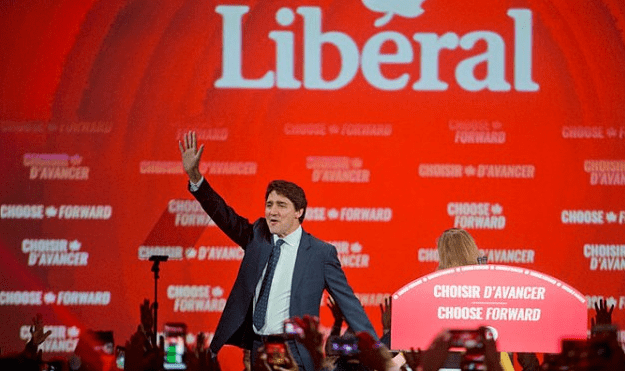Canada’s Next Choice: Chaos or Collaboration

Hill Times/Andrew Meade
Lisa Van Dusen/For The Hill Times
Oct. 30, 2019
The real challenge presented by the Oct. 21 election result will be for Parliament to produce progress from division.
As anyone interested enough in politics to be reading this knows, between the narrative rudder of agitprop social media storms, the normalization of previously unthinkable headlines, and the apparent commoditization of lunacy as a political tool, shit happens—a lot more often and much more avoidably than it used to.
For now, as we await the cabinet swearing-in on Nov. 20 and the return of Parliament, the general takeaway from the results of the Oct. 21 election seems to be that the new minority government will be either a paragon of benevolent game theory actualization or an Italian-style fiasco of Machiavellian recrimination.
In the world’s most powerful capitals these days, the daily content sphere is being polluted with off-putting, democracy-jamming headlines made plausible by leaders who’ve exploited conservatism as a Trojan Horse for systemic malware that has produced the hypertactical idiocy of Brexit and Donald Trump’s depraved presidency. That daily dose of content portrays democracy as a dangerous, dysfunctional, and relentlessly aggravating system whose replacement by anything less dystopian, from Maoism to the Lollipop Guild would, ostensibly, be a relief.
It’s as if we’re all now living in the Marvel Comics universe where—in some windowless bunker at an undisclosed location at the dawn, 20 years ago, of the most impactful information revolution since Gutenberg—the most powerful unelected interests in the world decided to harness the weapons of that revolution to covertly consolidate power and pre-empt a reckoning that would have, inevitably, pitted viral democracy against increasingly Hobbesian capitalism by sabotaging that process through rampant disinformation, diversion, and subterfuge.
While the reality may not be quite that mind-blowing, events in political and geopolitical affairs of the current world order’s post-Obama era do demand that choices be made. Between toxicity and civility, intractability and progress, and, more generally, democracy and an alternative that would no doubt, per every historical precedent and current, incipient Orwellian manifestation, be far more brutal and dehumanizing than advertised.
The international reaction to Trudeau’s re-election included many who lauded the result as a victory for small-L liberalism. At a time when the most important divisions in society are not ideological but between visions of the future—shorthanded as the difference between truth and lies, defending human rights and violating them, the rule of law and contempt for it, respect for the intelligence of voters and insulting it, approaching politics as a means of improving the lives of human beings or a zero-sum game to be won or lost hourly, viewing journalists as indispensable to democracy or as existential threats to be neutralized—the added value of small-L liberalism today lies in its thematic uselessness to the interests on one side of those dichotomies.
The 2019 election result produced a Parliament that will be compelled by math to collaborate on the challenges of health care, climate change, energy transition, economic inequality, the future of employment, Indigenous reconciliation, national unity, and more. Recent events on Capitol Hill and at Westminster have proven the value of political theatre to the side of the chaos versus collaboration divide that likes to weaponize division, outrage, and hate to spanner the works of rational governance. Self-inflicted crises are misrepresented as attacks, rational solutions are dismissed as impossible and entirely avoidable disasters are portrayed as achievements.
Canadians delivered a verdict on Oct. 21, that, among other things they expressed, will make progress conditional on compromise. What that will reveal about solutions, and how they are enabled or obstructed, will provide a lesson for besieged governments elsewhere. The choice for Canada’s leaders now is between chaos and collaboration.
Lisa Van Dusen is associate editor of Policy Magazine and a columnist for The Hill Times. She was Washington bureau chief for Sun Media, international writer for Peter Jennings at ABC News, and an editor at AP in New York and UPI in Washington.
